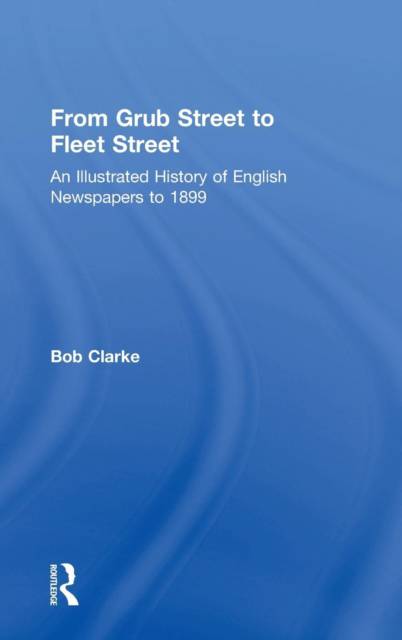
- Retrait gratuit dans votre magasin Club
- 7.000.000 titres dans notre catalogue
- Payer en toute sécurité
- Toujours un magasin près de chez vous
- Retrait gratuit dans votre magasin Club
- 7.000.000 titres dans notre catalogue
- Payer en toute sécurité
- Toujours un magasin près de chez vous
From Grub Street to Fleet Street
An Illustrated History of English Newspapers to 1899
Bob Clarke
Livre relié | Anglais
274,95 €
+ 549 points
Format
Description
Grub Street was a real place, a place of poverty and vice. It was also a metaphor for journalists and other writers of ephemeral publications and, by implication, the infant newspaper industry. During the seventeenth and eighteenth centuries, journalists were held in low regard, even by their fellow journalists who exchanged torrents of mutual abuse in the pages of their newspapers. But Grub Street's vitality and its battles with authority laid the foundations of modern Fleet Street. In this book, Bob Clarke examines the origination and development of the English newspaper from its early origin in the broadsides of the sixteenth century, through the burgeoning of the press during the seventeenth and eighteenth centuries, to its arrival as a respectable part of the establishment in the nineteenth century. Along the way this narrative is illuminated with stories of the characters who contributed to the growth of the English press in all its rich variety of forms, and how newspapers tailored their contents to particular audiences. As well as providing a detailed chronological history, the volume focuses on specific themes important to the development of the English newspaper. These include such issues as state censorship and struggles for the freedom of the press, the growth of advertising and its effect on editorial policy, the impact on editorial strategies of taxation policy, increased literacy rates and social changes, the rise of provincial newspapers and the birth of the Sunday paper and the popular press. The book also describes the content of newspapers, and includes numerous extracts and illustrations that vividly portray the way in which news was reported to provide a colourful picture of the social history of their times. Written in a lively and engaging manner, this volume will prove invaluable to anyone with an interest in English social history, print culture or journalism.
Spécifications
Parties prenantes
- Auteur(s) :
- Editeur:
Contenu
- Nombre de pages :
- 292
- Langue:
- Anglais
Caractéristiques
- EAN:
- 9780754650072
- Date de parution :
- 19-08-04
- Format:
- Livre relié
- Format numérique:
- Genaaid
- Dimensions :
- 156 mm x 234 mm
- Poids :
- 585 g







